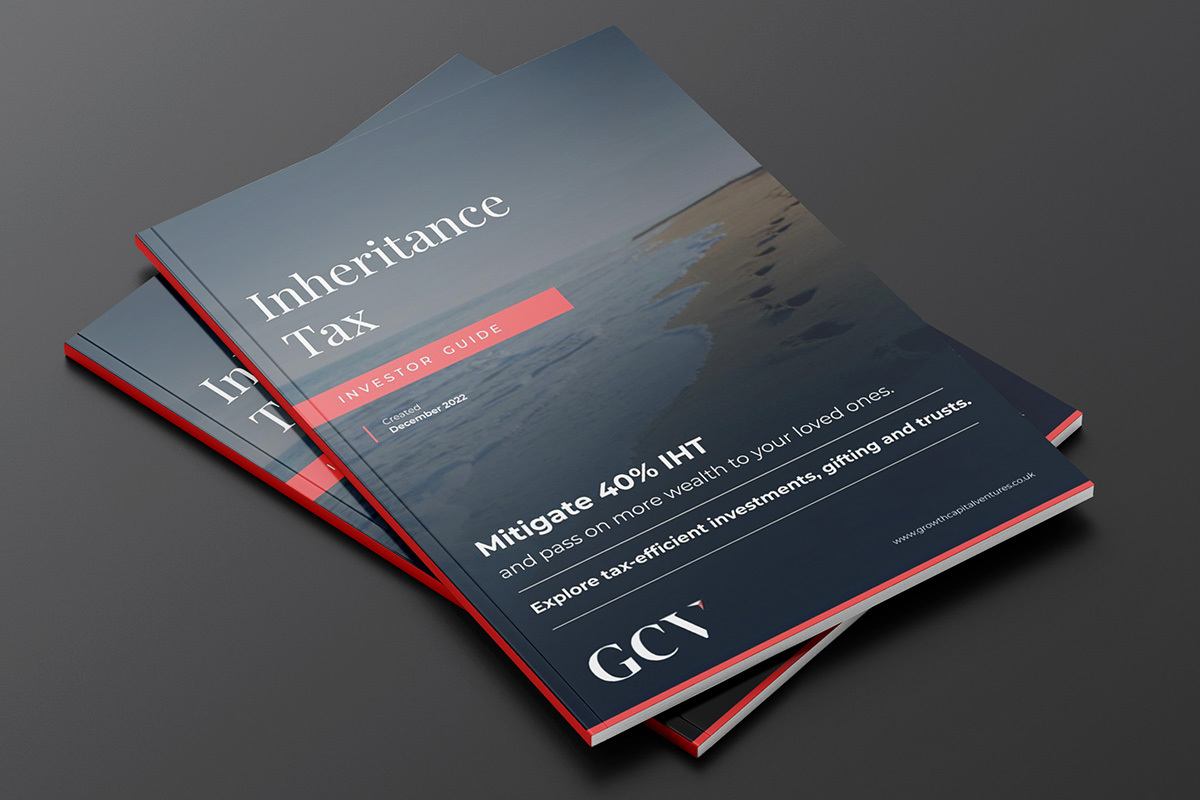
Inheritance Tax Explained
In the UK, inheritance tax is regarded as one of the most unpopular taxes. Assets that have already been taxed during your lifetime can be subject to tax - yet again - when they are passed down to your loved ones. But, with careful planning, an IHT liability on your estate can be reduced, or even completely eliminated.
Firstname Lastname & Firstname Lastname
Position & Position, Company
Inheritance Tax Explained
What is inheritance tax and how can I reduce it?
Inheritance Tax (IHT) is a levy on the estate (all property, possessions and money) of someone who has died. The standard inheritance tax rate is 40%. It is only charged on the part of your estate that exceeds the tax-free threshold (known as the nil-rate band) which is currently £325,000 and is set to be frozen at this level until April 2028.
Only a small percentage of estates are large enough to incur inheritance tax (IHT). However, for those with estates worth more than £325,000, it is important to understand how to work out what you need to pay and when, and some of the ways you can reduce your IHT liability.
Please Note:
This article has been prepared as a general guide only and does not constitute tax or legal advice.
1. How much is inheritance tax?
The amount of inheritance tax that may be due on your estate depends on a number of factors.
There is normally no IHT to be paid if:
- The value of your estate is below the nil rate band (£325,000).
- You leave your entire estate, or everything above the nil-rate band, to your spouse or civil partner.
- You leave everything, or everything above the threshold, to an exempt beneficiary, such as a charity or a community amateur sports club (CASC).
- If you give away your home to your children or grandchildren, provided that a number of conditions are met, your total IHT-free threshold can potentially increase to £500,000 by making use of the residence nil-rate band (RNRB).
For example, if your estate is worth £725,000 and you utilise the £325,000 nil-rate band, the inheritance tax charged on your estate will be calculated on £400,000 (£725,000 - £325,000). The inheritance tax payable would be £160,000 (40% of £400,000).
You can use this inheritance tax calculator to estimate how much the IHT liability may be on your estate.
2. What are the main IHT rules and thresholds?
A number of inheritance tax rules exist that can enable individuals to increase, and even double, their tax-free allowances - provided that certain criteria are met.
Passing on Your Home to Loved Ones
You can leave your home/s to your spouse or civil partner when you pass away, and there is no IHT to pay. However, if you leave the home to another person in your will, it counts towards the value of your estate, and IHT may be due on the asset.
The Residence Nil-Rate Band (RNRB)
The residence nil-rate band (RNRB) currently stands at £175,000, which is frozen until April 2028, and can combine with the standard nil-rate band to increase your overall tax-free threshold to £500,000 if you leave your home to your:
- children
- grandchildren
- stepchildren
- adopted children
- foster children
Taper Relief
There is tapered withdrawal of the RNRB if the overall value of your estate exceeds £2 million. For every £2 that your estate is above £2 million, the residence nil-rate band decreases by £1.
So, if the total value of your estate reaches £2,350,000, you are unable to benefit from the RNRB.
This table shows how the RNRB can increase your IHT-free allowance, and the potential combined allowance for those who are married or in a civil partnership:
| Tax Year | Nil-Rate Band (£) | Residence Nil-Rate Band (£) | Total for individuals (£) | Total for couples (£) |
|---|---|---|---|---|
|
2024/25 |
325,000 |
175,000 |
500,000 |
1,000,000 |
It was announced in the Autumn Statement 2024 that inheritance tax nil-rate bands will remain at existing levels until April 2028.
You can find out more about the residence nil-rate band on the gov.uk site here.
Married Couples and Civil Partners Can Pass on Unused Nil-Rate Bands
The IHT nil-rate band is currently fixed at £325,000 until 2028, but your NRB could increase if you are widowed or are a surviving civil partner. Couples can transfer any unused NRB when the first person dies to the surviving partner.
This can double the amount of NRB available for an individual up to £650,000. This additional transferrable value is known as the transferable nil-rate band (TNRB).
You might also be able to use any unused residence nil-rate band (RNRB) from your spouse or civil partner’s estate if you are widowed or a surviving civil partner. This can double the amount of RNRB available from £175,000 to £350,000.
You can find out more about transferring unused IHT thresholds on the gov.uk website here.
3. How to value your estate for IHT purposes
Accurately calculating the value of your estate is crucial to establish the amount of inheritance tax that your loved ones may face, and the extent of any reliefs that could be fully utilised.
To value an estate, you’ll need to:
- List all of the assets and calculate their value at the date of death, and
- Deduct any debts and liabilities.
Assets include items such as cash in a bank account, certain ISAs, property and land, jewellery, cars, shares, a payout from an insurance policy and jointly-owned assets.
Debts and liabilities may include the value of some gifts made, charitable donations and reasonable funeral costs. These can be deducted from the value of your estate to potentially reduce the amount of IHT due.
HMRC can ask to see records up to 20 years after inheritance tax is paid. So, remember to keep records of how you calculated the value of an estate, such as an estate agent’s valuation for property assets.
You can find out more on how to value an estate for IHT purposes on the gov.uk site here.
4. Who pays inheritance tax?
If there’s a will, it’s usually the executor of the will who arranges to pay the inheritance tax. If there isn’t a will, it’s the administrator of the estate who does this.
IHT can be paid from funds within the estate, or from money raised from the sale of the assets.
However, in practice, most IHT is paid through the Direct Payment Scheme (DPS). This means, if the person who died had money in a bank or building society account, the person dealing with the estate can ask for some, or all, of the IHT due to be paid directly from the account through the DPS.
Sometimes, the person who passed away has left money to pay IHT. This is usually arranged through a whole-of-life insurance policy, which remains in force until the policyholder’s death (as long as the premiums are paid).
Payments from a life insurance policy could be subject to IHT. But, by writing the policy in Trust, the tax should be avoided. This way, you also avoid going through the often lengthy probate process.
When the tax and debts are paid, the executor or administrator can distribute what remains of the estate to beneficiaries.
5. When do you have to pay inheritance tax?
Inheritance tax must be paid within six months of the person passing away. If the tax is not paid by the end of this six-month period, HMRC may charge interest on the outstanding balance.
The executors can choose to pay the tax on certain assets, such as property, in instalments over a ten-year period. However, the outstanding balance will attract an interest charge from HMRC.
If the asset is sold before all of the IHT liability is settled, the executors must ensure that all instalments (and any outstanding interest) are paid at that point.
If your estate is likely to incur IHT, it’s prudent for your executor to pay some of the tax within the first six months of death. This is called payment on account and can help if there are still outstanding matters relating to valuing an estate.
This can help the estate reduce the interest charged by HMRC if it takes longer to sell the assets to pay off outstanding liabilities and taxes.
If the executor or administrator is paying the tax from their own account, they can claim it back from the estate.
Probate is the right to deal with the deceased person’s property, money and possessions. HMRC will refund the estate if it has overpaid IHT when probate has been given.
If you’ve been appointed executor or administrator of the estate, you will need to complete and send in an account of the estate within a year of the death to avoid a penalty.
6. How can I reduce inheritance tax?
Reducing the IHT liability on an estate can be complicated and requires careful planning. In short, there are a number of ways you can reduce how much inheritance tax is paid by:
- Spending your money, or giving it away, during your lifetime - No tax is due on any gifts you give, as long as you live for seven years after giving them.
- Leaving money to a UK charity, sports club or political party - If you leave more than 10% of your taxable estate to one of these groups in your will, the inheritance tax rate for the rest of your estate will fall from 40% to 36%.
- Leaving your estate to your spouse - Your spouse or civil partner will never have to pay inheritance tax on assets you leave them, regardless of the value. Making the most of this in your will can reduce, or completely eliminate, the IHT due on your estate.
- Putting your assets into a trust for your beneficiaries - Cash, investments or property held in a trust sit outside of your estate for inheritance tax purposes, and can therefore help you avoid an inheritance tax bill.
- Paying into a pension instead of a savings account - Depending on the type of pension, money paid into your pension can be passed on to your dependents or family tax-efficiently.
- Regularly giving away up to £3,000 a year in gifts - You can give away a total of £3,000 worth of gifts each tax year without them being added to the value of your estate. This is known as your ‘annual exemption’.
- Utilising an equity release scheme - If all your wealth is tied up in your property, you may not be able to make use of gifts during your lifetime, or spend your wealth on yourself. To get around this, some people take out an equity release scheme.
- Taking out a life insurance policy - If you can't reduce an IHT bill, you can insure against it. Life insurance is one of the simplest ways of covering an unwelcome bill, but unless you're relatively young and healthy, policies can be expensive.
- Using all property allowances - If you leave your home to your children or grandchildren in your will, then property allowances could increase your tax-free threshold by £175,000 for the current 2024-25 tax year (taking the total IHT-free allowance to £500,000). For a married couple who combine their allowances and leave their home to children or grandchildren, an estate of up to £1,000,000 could be passed on, completely free of IHT.
- Investing to reduce IHT - For those with an estate that is likely to be worth over £1 million at the time of their passing, it could be useful to consider investments that allow your wealth to be passed on free of inheritance tax. These include investing in BPR-qualifying companies, AIM ISAs and EIS/SEIS-qualifying businesses.
Protecting your wealth and passing it on to loved ones requires careful planning. You can find out more on how to reduce and avoid inheritance tax here. It is worth seeking specialist advice to ensure your affairs are dealt with in the most tax-efficient manner.
Free Investor Guide
Reducing Inheritance Tax
A number of strategies and investment routes can help with mitigating a potential inheritance tax liability, from establishing a trust to investing in certain private and AIM-listed companies. This guide explores some of the options, with a focus on IHT-efficient investments such as:
- Companies qualifying for Business Property Relief (BPR)
- EIS- and SEIS-eligible businesses
- AIM ISAs
Discover how utilising these tax-efficient wrappers and investment options can help you protect your assets and pass on more wealth to your loved ones.

Building Wealth.
Protecting Wealth.
Become a GCV Invest Member
Alternative investment opportunities with the potential to deliver superior returns and tax-efficiency.
GCV Invest is a private investor network and sophisticated co-investment platform, formed with the goal of connecting experienced investors with high-growth, impact-driven alternative investment opportunities. Offering a range of investments that qualify for inheritance tax relief, investing with GCV can form part of your wider tax-planning strategy.
Join our Private Investor Network:

Inheritance Tax FAQs
Find out how investing with GCV can help as part of a bespoke IHT planning service
Should you have any further questions regarding the IHT-eligible investment opportunities we offer at GCV, and how to invest with us, you can contact our Investor Relations Team at any point. Additionally, we have provided answers to a number of frequently asked questions below.
-
Inheritance tax is a levy on the estate of someone who has passed away. An estate can include property, investments, possessions and any other assets. From this, any liabilities, such as debts and reasonable funeral costs, can be deducted to calculate the value of an estate and determine whether or not inheritance tax is due.
-
Yes, inheritance tax can be legally avoided by following a number of strategies and investment routes. For example, setting up a trust, utilising gifting allowances, leaving your estate to your spouse or civil partner - or a qualifying charity - or investing in companies that qualify for Business Property Relief (BPR) can each offer unique ways of strategically reducing the value of your estate, and subsequently any IHT due, or allocating capital to schemes that are exempt from inheritance tax.
-
In the UK, the inheritance tax threshold (or nil-rate band) is currently £325,000, and is set to be frozen at this level until April 2028. Anything above this tax-free allowance could be subject to 40% inheritance tax.
An additional inheritance tax threshold of £175,000, known as the residence nil-rate band (RNRB), applies exclusively to property that fits certain criteria. Both tax-free allowances can be combined, potentially enabling individuals to pass on an estate of up to £500,000 to their loved ones, completely free of IHT.
-
During their lifetime, individuals often give gifts to loved ones to reduce or mitigate a future inheritance tax liability. No inheritance tax is due on any gifts you give if you live for 7 years after giving them.
However, if you pass away within 7 years of giving a gift, it may form part of your estate and be subject to inheritance tax.
The amount of tax due on an individual gift depends on how long before your death the gift was given. If it was given within 3 years before your death, it could be taxed at the full 40% IHT rate, whereas gifts given between 3 and 7 years before your death are taxed at progressively lower rates according to a system of 'taper relief'.
-
The central investment hub and co-investment platform for the GCV private investor network, GCV Invest brings together a cohort of online and offline, private and institutional investors who all share one common mission - to access growth-focused, impact-driven alternative investment opportunities.
-
You can sign up to the GCV Invest co-investment platform directly here, but if you have any further queries, or would like to personally register your interest with our Director of Investor Relations, Dan Smith, you can contact him via dan.smith@growthcapitalventures.co.uk
-
We charge no upfront fees for being part of our investor network, having access to our opportunities or investing into our opportunities.
For investors, fees are only charged at the point of a liquidity event occurring (such as a trade sale or IPO). At this point, 7.5% of the investment gain is charged before funds are provided back to you as an investor.
Whilst dividend payments should not be expected from early stage investing, if and when they are paid, 7.5% of the dividend amount is charged to investors.
-
Performance update reports on portfolio holdings are provided to GCV Invest members on a quarterly basis. When an investment is sold, GCV distributes cash proceeds to investors.
GCV also has a dedicated and secure Investor Portal enabling GCV Invest members to keep track of their portfolio at any time.
Have a query that you can't find an answer to? Please leave us a message via our Contact us page.
Latest Updates
From tax efficient investing to joint venture property investing, our blog is full of news, information and insights.

VCT Tax Relief Cut: How the Change Could Reshape Early-Stage Investment


Portfolio Diversification Strategies Explained For Investors

Subscribe
Let's keep in touch
To keep up to date on news, events and investment opportunities, sign up to our newsletter here.
* You can unsubscribe at any point using the link provided in the footer of all emails, for more information about how we handle data you can view our privacy policy.
%20(3)%20(2).jpg)
